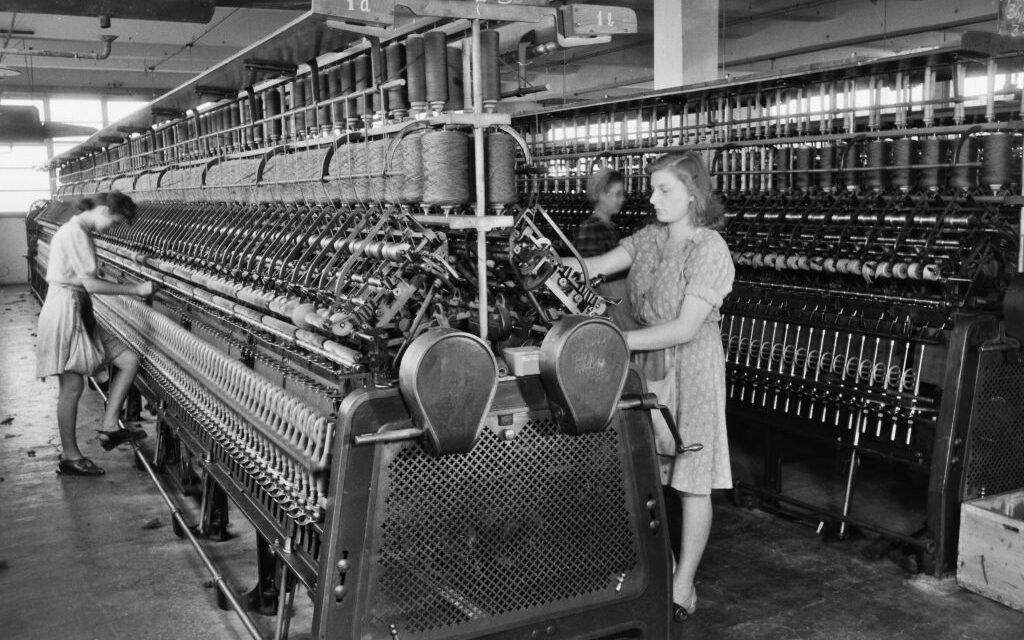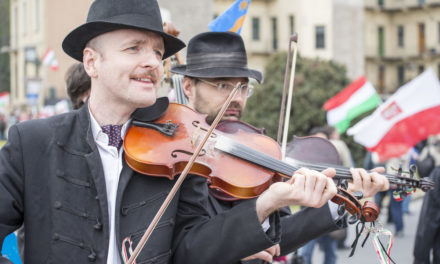The price of the Most Cheerful Barrack - "I have tears in my eyes, my soul is heavy" - Zsuzsanna Borvendég's personal, heartbreaking writing about her family.
"My parents were also the losers of the system change. Refrigerator socialism only allowed the satisfaction of the most basic needs to become the goal of life and forced the "population" into spiritual and spiritual bleakness. (Population: that's what they told us. We weren't Hungarians, definitely not a nation, just a population. Or at most citizens, with a flood of obligations, without rights.) We had no future - they built it without us and for themselves, it was called communism - so there was nothing to plan for , only the survival of the given day could float before our eyes. The ability to take care of themselves was thus taken away from generations - including my parents. Then they were pushed into the "free world" to somehow survive. They failed." "Joy" in the barracks - Zsuzsanna Borvendég's personal writing about the victims of communism.
The smell and noise of "goulash communism" was etched in my mind forever. When I recall the moments of my childhood, even the happiest moments are engulfed in a clicking gray fog. The thin streak of smoke from the soldering iron slowly snaked towards the ceiling and entwined with the bluish-gray poison of the Swallow cigarette. Through the peculiarly scented gloom, my mother smiled at me with a broken, sad look and worked. Always. In the small panel room, there were mountains of colored wires that had to be attached to plastic plugs and then tied to make the soldering work better. I sat next to him a lot. We talked and held hands. He soldered, I wound the rigid cables in the specified order: one from the back to the right, the other from the front to the left and so on. I didn't even have to look there, I knew what belonged where. I did it quickly so that it would be used up as soon as possible, and in my rush I didn't even care if it rubbed my finger - it doesn't matter, just be done! Then, if there weren't that many, disgusting, rainbow-colored wires, then the yarns came. They were also colorful. The thread guide perched above the knitting machine sucked and swallowed the fluffy twines, the cotton skeins spun, while my Mom pulled the strange lever with persistent monotony that directed the army of knitting needles into a disciplined order so that the machine would give birth to my Christmas banana.
There was always a bunch of bananas under the tree at Christmas. It was a great treasure back then. My first memory of this sweet and creamy fruit is when I'm curled up on the sidewalk next to my beloved brother, on the bridge in Komárom (the border of shame in Trianon) and munching on a banana. Our mother is standing next to us, arguing with the border guard with her hand on her hip: she won't give it to us if we can't take it home, the children will eat it here. And we ate it. I didn't understand any of it, but at first the taste of heavenly manna in my mouth was funny. Then the absurdity of the situation and the environment slowly settled on my childish soul, the army of armed uniformed men towering over us, as they undignifiedly fight with my Mother, became terrifying. And in the meantime we ate steadily. I just watched and didn't understand why they needed my bananas so much. I wonder if we cross that barrier, won't they cut me out of my belly like the hunter cut Little Red Riding Hood out of the wolf? They didn't cut it, but later we smuggled rice and sugar over the same bridge countless times, because it was cheaper over there. My heart was pounding in my throat when the border guards looked through the window of the Trabant, opened the trunk and instructed us with a scrutinizing-suspicious look and in an unfriendly manner.
I didn't like uniforms, I was afraid of them. I was afraid of the endless Soviet convoys that could not be overtaken. When they came, we lurked patiently behind them, and my darting mind protested desperately against the panzers, hating them as I hated the red flags on the 15th of March. I once asked the teacher, why is the Russian flag outside when they defeated the war of independence? I thought '48, I had no idea about '56. But the air is frozen.
The knitting machine threw out cat pants, sweaters, and scarves. They were incredible values, they were made based on the models of Burda fashion magazines acquired from FRZ, they were not sold in the Centrum department stores. The orders kept coming. The mechanized knitting needles clicked and clicked, the "gift" pieces were also prepared for the shop assistants, who took the small package with a telling look during the first snowshoeing trips, to bring out the bunch of bananas from the warehouse (under the counter) at the end of December, which were necessarily yellow there on Christmas Eve. under the Christmas tree.
I sat there in the cigarette smoke, hemmed, sewed, buttonholed and we talked. If we weren't talking, I was reading. A lot. Lots of it. It was the only way to break out of the gray-smoky gloom. I was devouring the books while my hands were moving. I strung the wires, sewed the buttons. There was no stopping. My mother was often in the hospital, she was already sick when I was born. They always operated, sometimes with this, sometimes with that. His back was bent over by a lot of work, because we could not have lived on his disability pension. He got the pension because he was sick, but that didn't matter. He worked day and night.
My father used to play games. He often stood in front of the lathe for 16 hours. Both of his legs were also amputated. Today, he sits in a wheelchair and stares unconsciously in front of him. But they created "goulash communism" for me, they gave me what the consumer society of the "most cheerful barracks" could give me.
We didn't go on vacation, but we had a small plot in the neighboring village where we grew peas, beans, potatoes, and tomatoes for the whole year. Yes, planting, sowing, weeding, and hoeing came after hemming and wiring, sewing and binding. And they were grateful that they could at least wrestle. It just happened that way, otherwise I wouldn't have made it to university. This was the fun in the barracks…
My mother worked herself to death. The cursed smoke of the Swallow cigarette permeated his lungs and took his breath away. He left me here. He went after his son, who fell victim to an inattentive bus driver a year or two after eating bananas on the side of the road. It's better for her there, I know, but I so want her to see that the suffering, the superhuman sacrifice, was not in vain: her daughter made it to graduation and even beyond.
My grandfather lived a long time. My grandfather, who traveled the Don bend, survived Soviet captivity, and outwitted communists, buried all three of his children. He was a member of an even luckier generation, he grew up between the two world wars. He lived through the cataclysms of the conflagrations, fled with his family from the Highlands in fear of death as a small child, was a passenger on the Don, and then covered the retreat. He hid Jews, was taken as a prisoner of war, did not get a job, had to work as a vagabond so that his eldest daughter could get into medical school, that is, he lived an average, twentieth-century Hungarian life. And yet he was the luckiest, he lived 92 years. His children are not even fifty.
When I hear how much better it was in the Kádár system, my stomach convulses: what are they talking about? Communism took away the faith, the soul, the pedestal. What keeps you, what gives you strength, what lifts you up in times of trouble. He broke, tortured, robbed the man, and then left him alone. And yet "all power belonged to my parents" - that's what they said. They were the PEOPLE, in all capital letters. They were the real proletarians: the day laborers of eight hours of work, eight hours of self-exploitation, eight hours of despair. He was not good in the Kádár system. In vain did I have a carefree childhood, in vain could we stand in line for hours for a box of Legos, and then I could build a dream world for myself from the colorful blocks: the price was too high.
My parents were victims of the "soft dictatorship", as was my grandfather. He was not broken by the world wars either, but by the "cancer-freak life" in Kádár, which condemned him to the unnatural fate of having to stand at the graves of all three of his children.
My parents were also the losers of the system change. Refrigerator socialism only allowed the satisfaction of the most basic needs to become the goal of life and forced the "population" into spiritual and spiritual bleakness. (Population: that's what they told us. We weren't Hungarians, definitely not a nation, just a population. Or at most citizens, with a flood of obligations, without rights.) We had no future - they built it without us and for themselves, it was called communism - so there was nothing to plan for , only the survival of the given day could float before our eyes. The ability to take care of themselves was thus taken away from generations - including my parents. Then they were pushed into the "free world" to somehow survive. They didn't succeed.
There is a memorial day for the victims of communism. Tears in my eyes, my soul is heavy. I think of them and the hundreds of millions who were murdered, tortured, humiliated, maimed and ruined. For all of us who still carry the pain and burdens. I remember and write. This is the only thing I can do for them, for ourselves, so that it never happens again. And I pray in silence: God, bless the Hungarians and free them from evil!
Source: PS
Weavers in Győr, 1951. Photo: id. Tamás Konok. Source: Fortepan












